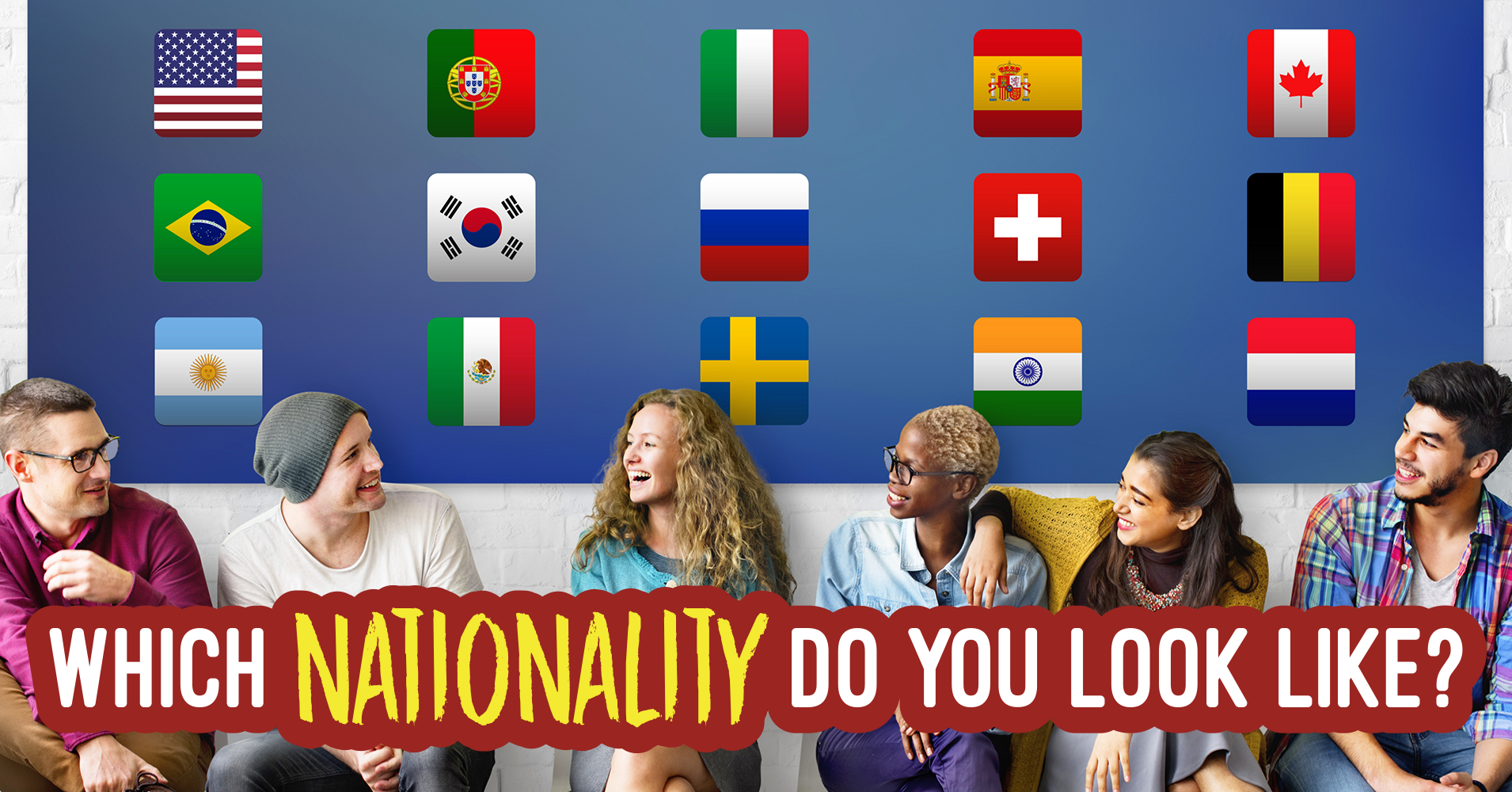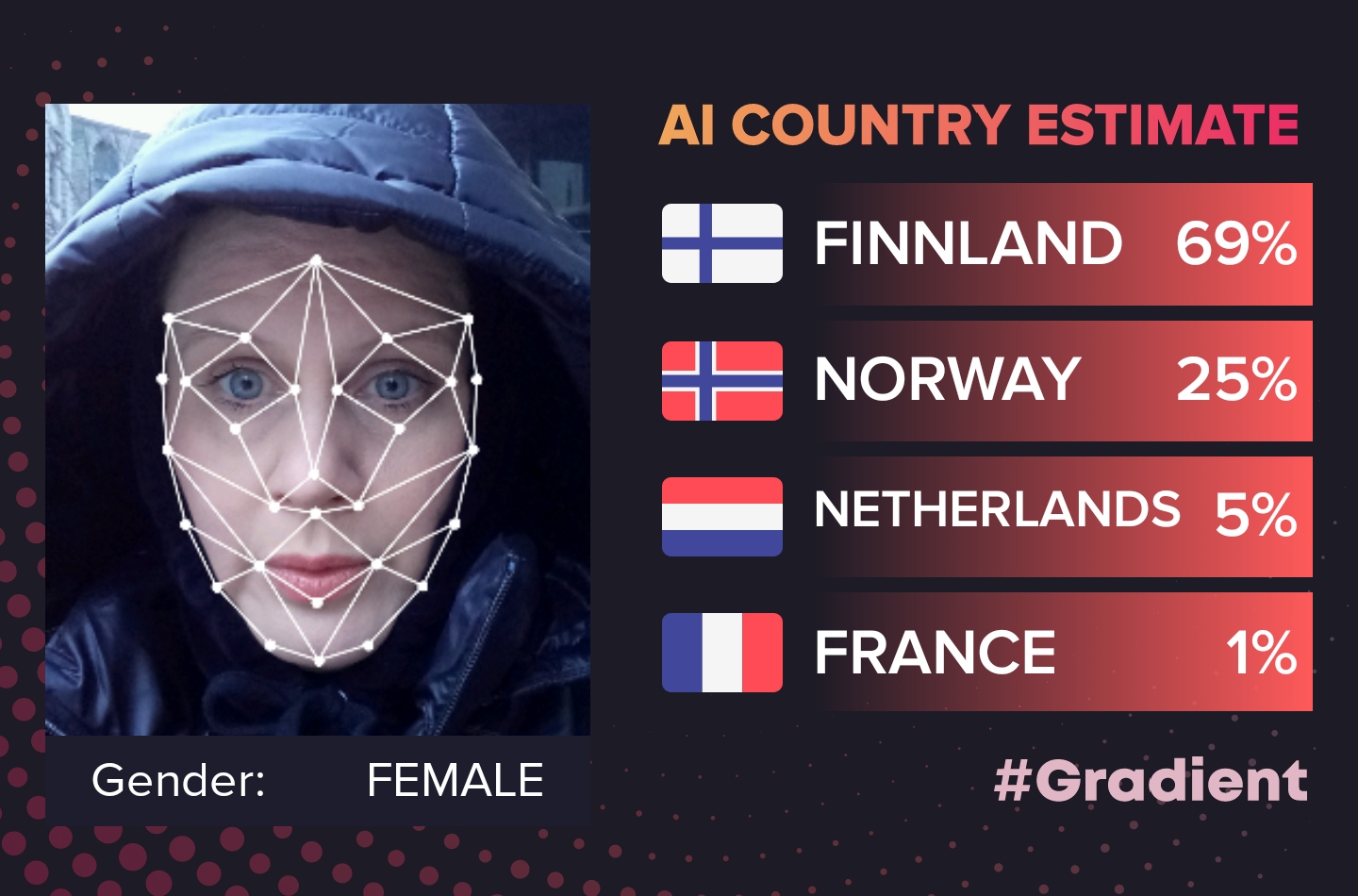Have you ever stopped for a moment and thought, "what race do i really look like?" It's a question many of us ponder, you know, especially with all the new ways to explore our backgrounds these days. Apparently, there are now clever digital helpers that can give you a glimpse into your heritage just from a photo.
These handy tools, it's almost like magic, use very smart computer programs to look at your picture. They are designed to spot visual hints, like features on your face, and then try to guess your likely background. You might even find them identifying other things in your image, too, which is kind of neat.
Beyond the quick guesses, there's a larger conversation happening about identity, actually. Governments and researchers, for example, are constantly working to get a clearer picture of how we all fit together. This includes updates to how we talk about different groups of people, making sure everyone feels seen and counted.
Table of Contents
- Have You Ever Wondered - What Race Do I Look Like?
- How Do These Tools Help You Find Out What Race Do I Look Like?
- Can Online Quizzes and Filters Really Tell Me What Race Do I Look Like?
- Looking Beyond the Picture - The Bigger Picture of Identity
- Official Steps to Better Understand What Race Do I Look Like
- What Do Census Updates Mean for Understanding What Race Do I Look Like?
- Connecting the Dots - Identity and Everyday Life
- How Official Data Helps Us Grasp What Race Do I Look Like
Have You Ever Wondered - What Race Do I Look Like?
It's a pretty common thought, isn't it? To wonder about your roots, or what background your face might suggest to someone else. For a long time, people have been curious about this, and now, you know, we have some fresh ways to explore it. There are tools out there that can take a look at your picture and give you an idea of your background. It's not about putting people in boxes, but rather about satisfying a natural human curiosity about where we come from and what our appearance might hint at. This whole idea of asking "what race do i look like" is, in a way, a reflection of how we see ourselves and how others might see us. It’s a personal question for many, and it’s become something we can actually explore with modern technology, which is kind of cool.
How Do These Tools Help You Find Out What Race Do I Look Like?
So, how do these digital helpers actually work? Well, when you give them an image, these smart systems try to figure out your background, more or less, by looking at your face. It's like a computer that learns things, you know, and it can even spot other stuff in your photo, which is pretty neat. These are often called "image recognition tools," and they use very advanced computer learning to do their job. They can, for example, identify and recognize ethnicity in your image. Some places offer a free way to sort of guess your likely background. They might be called a "free classifier to identify likely race." You just upload a picture, and the computer program does its best to assess visual markers, such as skin characteristics or other facial features. It’s a bit like a fun experiment, really, to see what the machine comes up with when it tries to determine what race do i look like from your photo. These programs are always getting better at what they do, too, making their guesses a little more refined over time.
Can Online Quizzes and Filters Really Tell Me What Race Do I Look Like?
Beyond the more serious image analysis, there are also plenty of playful ways people explore this question, you know? There are quizzes, too, where you share a photo, and they try to uncover what nationality might be hidden in your looks. These quizzes often ask for just a few bits of information, you know, to do their thing and give you the best possible guess. Nowadays, a tool that checks your face from a picture can, in a way, tell you what background you appear to have. You can even chat with a computer program that tries to figure out your background, like an "AI ethnicity test" that just tries to guess a person's background from a picture. You could try these and other free computer-based tools and chat programs on certain websites, for example, like those found on miniapps.ai. It's about looking at someone's picture to see if they might be from an African background or some other group. Someone puts up a picture of their face, and the tool looks at things like skin tone, basically, to figure out their background. There's even an app that can, in a way, try to trace your family history by checking your facial features. You can explore your cultural roots with things that ask, "what ethnicity do i look like?" They let you think about different questions to see which background feels most like yours. Or maybe you wonder, "what nationality do i look like?" You could try apps that check your face, quizzes on the internet, or even popular social media filters to help find what background seems to fit you best. Do you want to finally get some answers about whether you're, say, Irish, Italian, African, Asian, Latino, or maybe a mix of these? Just spend a couple of minutes on one of these quizzes. It's like they're trying to see something about you, really, based on the picture you share. These are, in some respects, fun ways to play with the idea of "what race do i look like" without getting too serious about it.
Looking Beyond the Picture - The Bigger Picture of Identity
While those apps and quizzes are certainly interesting, there's a much broader conversation happening about identity, especially when it comes to how we count and understand different groups of people. This isn't just about a fun quiz; it's about how official bodies, like governments, try to make sense of the diverse human family. This work involves a lot of thought and, you know, careful consideration, because identity is such a personal and important thing for everyone. It’s about making sure that the ways we categorize people for official purposes truly reflect the varied ways individuals see themselves. This bigger picture helps us understand not just what race do i look like, but how society as a whole thinks about and records human diversity, which is quite a big task.
Official Steps to Better Understand What Race Do I Look Like
Governments, you know, take this very seriously. On March 28, 2024, a government office in the U.S., the Office of Management and Budget, put out what they found after looking at an important set of rules called Statistical Policy Directive No. 15. They also put out some new guidance for how information about people's backgrounds should be gathered and used. This wasn't a quick decision, either. After many years of careful study, talking with lots of people, and getting advice from government experts, on March 28, 2024, the U.S. Office of Management and Budget, actually, made some decisions about these standards. This fits with earlier studies, which found that when people were asked about their background in a combined way, fewer people, you know, identified as fewer distinct categories. The rules from the OMB back in 1997, you know, made it okay for people to say they belonged to more than one background. These changes and reviews are all part of an ongoing effort to better capture the rich mix of people living in a country. It’s about making sure that when official forms ask about your background, the options given really allow you to say what feels right to you, reflecting the complexity of what race do i look like for many people today.
What Do Census Updates Mean for Understanding What Race Do I Look Like?
The Census Bureau, for example, plays a really big part in this. They share official numbers for over 200 new, very specific groups of people by background. For instance, the story from 'America Counts' showed that Asian Indian was the biggest Asian group. This kind of detailed information is very important for understanding our communities. The Census Bureau, just recently, put out the 2020 modified age and race census file. These tables give information from the 2020 census using categories for background that, you know, have been updated to be more reflective of how people identify. This means that when you fill out a census form, the questions and categories are designed to give a clearer, more accurate picture of the population. It’s a big step towards recognizing the many different ways people see themselves, and it helps to provide a more complete answer to questions about what race do i look like for millions of people. These updates are a sign that official ways of collecting data are changing to keep up with how society sees identity.
Connecting the Dots - Identity and Everyday Life
So, while it's fun to explore what race do i look like through an app or a quiz, it’s also important to remember that these official efforts to count and categorize people have real-world effects. They help us understand things like how different groups are doing in terms of income, for example, or where resources might be needed. This isn't just about numbers on a page; it's about understanding the lives of real people. The way we talk about and record identity, you know, can influence everything from public services to how different communities are understood. It’s about making sure that everyone is represented fairly and that policies are made with a full picture of who we are as a society. This connection between personal identity and broad statistics is, in some respects, quite significant, shaping how we all live together.
How Official Data Helps Us Grasp What Race Do I Look Like
An example of this is a report about money earned in the United States in 2023, for example. It looked at average household earnings based on different traits, like background and Hispanic origin, and it showed that things are not always the same for everyone. This kind of data helps us see patterns and differences that might not be obvious otherwise. The list of codes for background shows how very specific answers to questions about background are put into categories and sorted. This list, you know, has thousands of very detailed answers that, for example, help organize all the different ways people see themselves. These codes are what allow officials to collect information in a consistent way, even when people provide very unique answers about their background. It’s a very complex system, actually, designed to capture the rich variety of human experience. So, when you think about "what race do i look like," remember that there's a whole world of official data collection and analysis working to understand and represent everyone's place in the bigger picture.
- Bianco Costa
- Alycia Debnam Carey Fappening
- Alex Ann Lavigne Nude
- Pizza Beer Bagel Festival
- Mary Noura Naked


